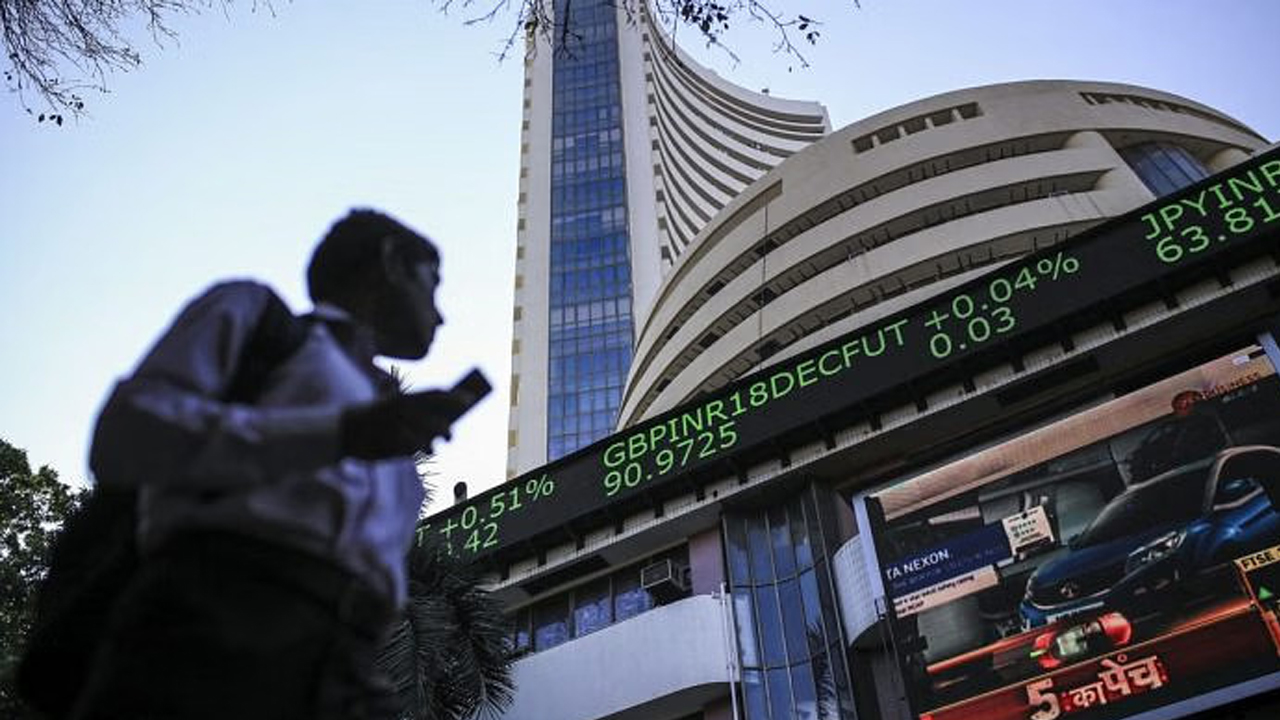Now Reading: Stock Market Crash Enters 6th Day: Sensex, Nifty Plummet Amid Global Uncertainty
-
01
Stock Market Crash Enters 6th Day: Sensex, Nifty Plummet Amid Global Uncertainty
Stock Market Crash Enters 6th Day: Sensex, Nifty Plummet Amid Global Uncertainty

The Indian stock market is witnessing a relentless downturn, with the Sensex and Nifty indices plunging for the sixth consecutive day. This prolonged decline has sent shockwaves through the investment community, raising concerns about the factors driving this downturn and the potential for further losses.
Key Factors Contributing to the Market Crash:
Several factors have converged to create a perfect storm for the ongoing market crash:
- Global Economic Slowdown: Concerns about a potential global recession have intensified in recent weeks, with major economies like the US and Europe facing headwinds from rising inflation, tightening monetary policies, and geopolitical uncertainties. This has led to a risk-off sentiment among investors, who are pulling back from equities and seeking safer havens.
- Rising US Bond Yields: The recent surge in US bond yields has made Indian stocks less attractive to foreign investors. As US bonds offer higher returns, investors are shifting their funds away from emerging markets like India, leading to capital outflows and downward pressure on stock prices.
- Weakening Rupee: The Indian rupee has been depreciating against the US dollar, making Indian assets less appealing to foreign investors. This has further contributed to the outflow of foreign capital from the Indian stock market.
- Disappointing Corporate Earnings: Several Indian companies have reported lower-than-expected earnings in recent quarters, raising concerns about the health of the economy and the prospects for future growth. This has dampened investor sentiment and triggered selling pressure in the market.
- Geopolitical Risks: The ongoing geopolitical tensions, including the Russia-Ukraine war and rising tensions in the Middle East, have created a climate of uncertainty and fear among investors. This has further exacerbated the market downturn.
Impact on the Market:
The sustained market decline has had a significant impact on investor sentiment and market dynamics:
- Investor Losses: The लगातार fall in stock prices has resulted in substantial losses for investors, eroding their wealth and creating a sense of panic. Many investors are now wary of further losses and may be tempted to sell their holdings, further exacerbating the market downturn.
- Increased Volatility: The market has become increasingly volatile, with sharp swings in both directions. This has made it difficult for investors to make informed decisions and has heightened the risk of further losses.
- Weakening Investor Confidence: The prolonged market decline has shaken investor confidence, making them more cautious about investing in equities. This could lead to a slowdown in investment activity, which could have negative consequences for the economy.
Outlook and Potential Rebound:
While the current market situation appears bleak, it is important to remember that stock markets are inherently cyclical and prone to fluctuations. Market corrections and crashes are a normal part of the investment cycle.
Several factors could trigger a market rebound in the coming months:
- Easing Inflation: If inflation starts to cool down, central banks may ease their monetary tightening policies, which could boost investor confidence and lead to a market recovery.
- Improved Corporate Earnings: If Indian companies report better-than-expected earnings in future quarters, it could signal a turnaround in the economy and attract investors back to the market.
- Resolution of Geopolitical Tensions: Any de-escalation of geopolitical tensions could reduce uncertainty and improve investor sentiment, leading to a market rebound.
- Government Intervention: The government may take measures to stabilize the market, such as announcing fiscal stimulus or easing regulations. This could help to restore investor confidence and trigger a market recovery.
Advice for Investors:
In the midst of this market turmoil, investors should remain calm and avoid making impulsive decisions. Here are some key pieces of advice for investors:
- Don’t Panic: Market crashes can be scary, but it is important to avoid panicking and selling your holdings at a loss. Remember that markets tend to recover over time, and selling during a downturn can lock in your losses.
- Diversify Your Portfolio: A well-diversified portfolio can help to mitigate the impact of market downturns. Make sure your investments are spread across different asset classes, such as stocks, bonds, and real estate.
- Invest for the Long Term: If you have a long-term investment horizon, you are better positioned to ride out market fluctuations. Focus on the long-term fundamentals of the companies you invest in and avoid getting caught up in short-term market noise.
- Review Your Asset Allocation: Make sure your asset allocation is aligned with your risk tolerance and investment goals. If you are uncomfortable with the level of risk in your portfolio, consider rebalancing your investments.
- Seek Professional Advice: If you are unsure about how to navigate the current market environment, seek advice from a qualified financial advisor. They can help you make informed investment decisions and manage your portfolio effectively.
Conclusion:
The ongoing stock market crash is a cause for concern, but it is important to remember that market downturns are a normal part of the investment cycle. By staying calm, diversifying your portfolio, and investing for the long term, you can weather this storm and position yourself for future gains.










